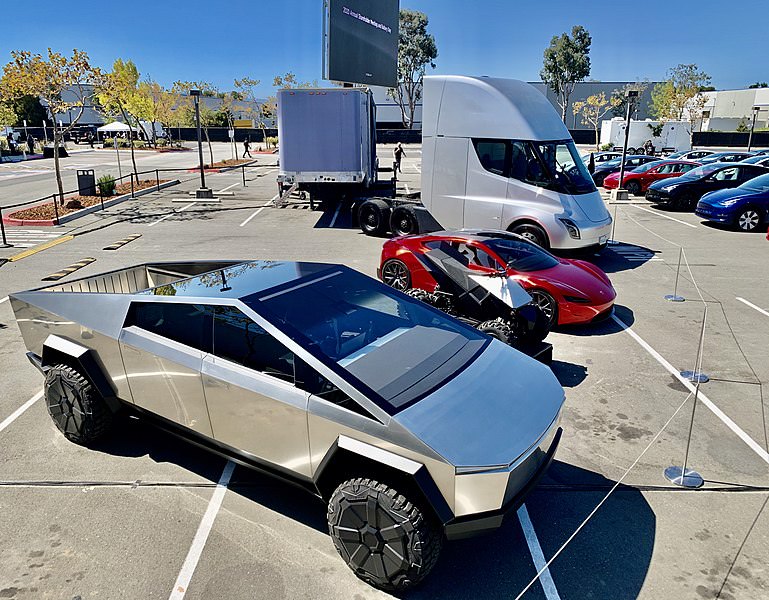Business
Report: Rapid EV growth fails to slow shift to bigger, deadlier vehicles
By Jake Beardslee · November 27, 2023
In brief…
- Global light duty vehicle efficiency improved 8% from 2020-2022, fastest pace ever
- Electric vehicles accounted for 15% of sales in 2022, cutting energy use per km in half
- Market shift persists towards less efficient but more profitable SUVs (51% of sales in 2022)
- Larger vehicles increase risks of severe injuries and deaths from crashes
- Transition risks exacerbating affordability gaps and global inequities

A new report from the Global Fuel Economy Initiative documents major shifts in the global automotive market from 2019-2022. Electric vehicle sales have rapidly increased, now accounting for 15% of global light duty vehicle sales. This surge is being led by China and Europe, where “EV sales increased the most.” Despite electric vehicles being far more energy efficient, sales continue to shift towards larger sport utility vehicles (SUVs) which are less efficient.
The average energy consumption per kilometer for new vehicles dropped 8% globally from 2020-2022, “double what has been observed in any year previously.” The average vehicle sold worldwide in 2022 consumed the equivalent of 6.9 liters of gasoline to travel 100 kilometers. Electric vehicles, with 3-6 times better efficiency than internal combustion engines, accounted for over half of these energy savings.
However, the report warns that electric vehicle adoption alone will not solve pressing issues like climate change and road safety. In 2022, 51% of global light duty vehicle sales were SUVs, up from 38% in 2017. The shift towards these larger vehicles has “detrimentally impacted energy efficiency improvements and CO2 emission mitigation.” Without SUVs gaining market share, improvements in conventional vehicle efficiency could have been 30% higher over the past decade.
Additionally, larger vehicles present safety issues for other road users. According to studies primarily from Europe and North America, crashes involving SUVs versus smaller cars are more likely to cause severe injuries or death. These heavier vehicles also result in significantly higher mortality rates for pedestrians they collide with.
The report argues that the SUV shift has challenged vehicle affordability and access. New SUVs sell for far higher prices than small and medium conventional cars that have lost market share. The trend risks exacerbating inequalities both within countries and between high-income countries rapidly transitioning to electric SUVs versus developing nations still relying largely on used vehicle imports.
Addressing energy, climate, safety and equity issues requires policy action on electric vehicles plus targeted policies to reverse the SUV market shift. Suggested measures include capping allowable vehicle footprint sizes, regulating maximum electric vehicle battery capacities, differentiated registration fees and taxes on larger vehicles, and subsidies to promote smaller, more affordable electric cars.